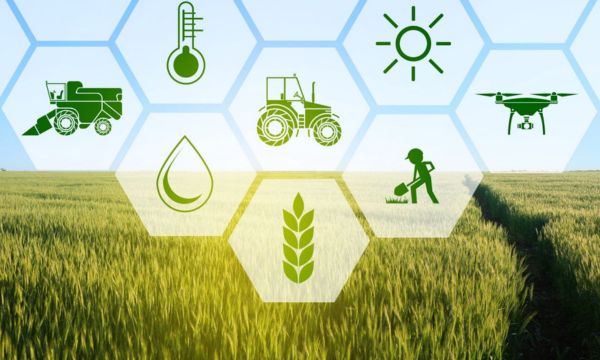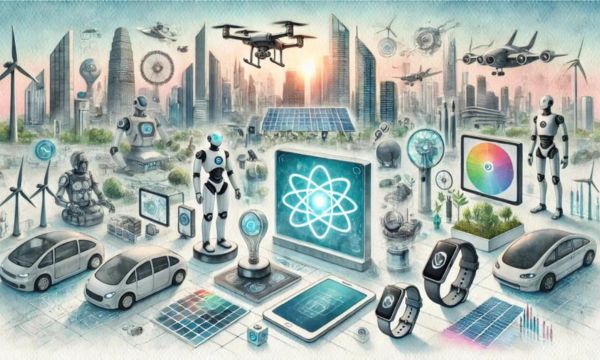The Power of AI Tech in Personalizing Education
Artificial intelligence (AI) technology is becoming a crucial tool in the rapidly changing education landscape, as it can create personalized learning experiences tailored to the needs of each student.
Ad
This innovative approach not only improves education but also prepares students for a future where personalization and technology are crucial.
This article explores the applications, benefits, and possible future developments of artificial intelligence (AI) in customized education.
An overview of AI in education
Artificial intelligence (AI) in education uses machine learning, natural language processing, and data analytics to automate administrative tasks, develop interactive learning environments, and deliver adaptive learning programs.
With the use of this technology that can analyze large amounts of data, traditional education technology can no longer provide personalized learning paths, immediate feedback, and insights.
Tailor-made educational program
AI’s potential to deliver personalized learning paths in education is one of its greatest strengths. To provide information tailored to the unique needs of each student, AI systems can assess each student’s knowledge level, preferred learning style, and learning progress.
This means that while high-achieving students may be challenged with more difficult content, those who struggle with specific topics have access to more exercises and resources.
Interactive and engaging educational programs
Artificial intelligence (AI) technology can make learning more dynamic and interesting through the use of simulation-based learning environments, educational games, and virtual teachers.
The learning process can be made more dynamic and efficient by using these AI-driven technologies that respond to student responses and provide quick feedback. This way, virtual teachers can provide one-on-one help at any time of the day, answer questions, and help students with challenging subjects.
Automate management tasks
AI is also crucial for automating administrative tasks, allowing teachers to focus more on teaching and less on paperwork. Artificial intelligence (AI) can effectively streamline multiple processes, such as grading assignments, scheduling courses, and managing student records.
This not only saves time but also reduces the chance of human error and ensures an efficient management process.
Improve usability
With the help of artificial intelligence technology, students with disabilities can now gain access more easily. Tools such as text-to-speech and speech-to-text software, adaptive assessment technology, and personalized learning interfaces can meet a wide range of learning needs.
This ensures that every student has an equal opportunity to learn and achieve.
Data-driven insights for teachers
By analyzing student data, artificial intelligence (AI) systems can provide educators with important information about student engagement, learning patterns, and potential problem areas.
By using this data to guide curriculum development, teaching styles, and intervention techniques, education can become more student-centered.
Obstacles and things to think about
Although artificial intelligence (AI) has many advantages in education, there are also some disadvantages, such as concerns about data privacy, the digital divide, and the obligation for teachers to learn new technologies.
The successful integration of AI into education depends on ensuring ethical use of student data, equal access to AI-powered education systems, and providing educators with the tools and resources they need.
The role of AI in future education
Looking to the future, artificial intelligence has unlimited possibilities in the field of education. As technology evolves, we can expect increasingly sophisticated AI solutions to offer greater customization, improved accessibility, and creative learning opportunities.
As AI continues to develop, it will not only change the way we teach but also provide students with the knowledge and skills they need to succeed in technologically advanced environments.
Integrating difficulties and ethical issues
Overcoming technical, practical, and ethical barriers is necessary for the perfect integration of AI into educational systems. To enable AI technology, educational institutions must have the right infrastructure in place, including dependent internet connectivity and gadgets to work with.
Furthermore, laws and regulations regarding the ethical impact of AI in education are imperative to protect students and ensure fair outcomes. These concerns include data privacy, security, and potential biases in AI algorithms.
The value of human supervision
Even with the capabilities of artificial intelligence, it is impossible to overestimate the value of human supervision. Educators are crucial when it comes to analyzing the insights generated by AI and implementing them in ways that are meaningful to education.
Students need human interaction to develop emotional intelligence, critical thinking, and creativity – skills that AI cannot teach. That’s why preparing teachers to work with AI is just as important as the technology itself.
Conclusion
The educational landscape is changing as AI technology enables personalized education and offers unprecedented opportunities for professional learning experiences.
Artificial intelligence enables every student to get the most out of themselves by tailoring education to their specific needs, increasing accessibility and involvement, and providing teachers with useful information.
With the adoption of new technologies, the future of education looks to be more personal, effective, and inclusive than ever before.
FAQs
1. How does artificial intelligence make each student’s learning process unique?
By examining data about each student’s performance, learning style, and progress, AI enables personalized education.
The curriculum, difficulty level, and learning paths are then adapted to meet the unique needs of each student, resulting in more efficient and tailor-made education.
2. Can Artificial Intelligence be used in classroom teaching?
No, artificial intelligence (AI) is designed to complement and improve education, not replace teachers.
With the help of AI, teachers can focus more on the educational and emotional parts of teaching by handling administrative tasks, providing personalized learning experiences, and generating data-driven insights.
3. What are some examples of applications of artificial intelligence in education?
For example, AI-powered analytics tools provide insights into student performance and engagement, virtual tutors that provide one-on-one assistance, educational games that make learning fun, and adaptive learning experiences that tailor the learning experience to the needs of each student.
4. Can all students use artificial intelligence in the classroom?
While issues like the digital divide can limit educational opportunities, artificial intelligence (AI) has the potential to improve access to education, especially for students with disabilities.
It will take efforts to ensure that all students have equal access to AI-powered educational tools and resources.
5. What are the main barriers to using artificial intelligence in education?
Ensuring ethical use of student data, bridging the digital divide to make technology accessible to all, and equipping teachers with the knowledge and capabilities to successfully integrate AI into teaching are among the challenges.
6. How can artificial intelligence support children with special needs?
AI can power specialized learning interfaces, adaptive learning tools, and support tools like text-to-speech and speech-to-text software, lowering barriers and addressing a variety of learning needs.
 AI in Content Creation: Unlocking a New Era of Productivity
AI in Content Creation: Unlocking a New Era of Productivity
AI in content creation is revolutionizing the way the media world produces, distributes, and consumes information. Ad […]
More The Ultimate Guide to Understanding AI Tech in Agriculture
The Ultimate Guide to Understanding AI Tech in Agriculture
Artificial intelligence (AI) technology is transforming the agricultural sector, making agriculture more efficient, sustainable, and successful in […]
More 10 Breakthrough AI Tech Innovations That Will Define 2025!
10 Breakthrough AI Tech Innovations That Will Define 2025!
As we enter 2025, artificial intelligence (AI) continues to be at the forefront of technological advancements, bringing […]
More